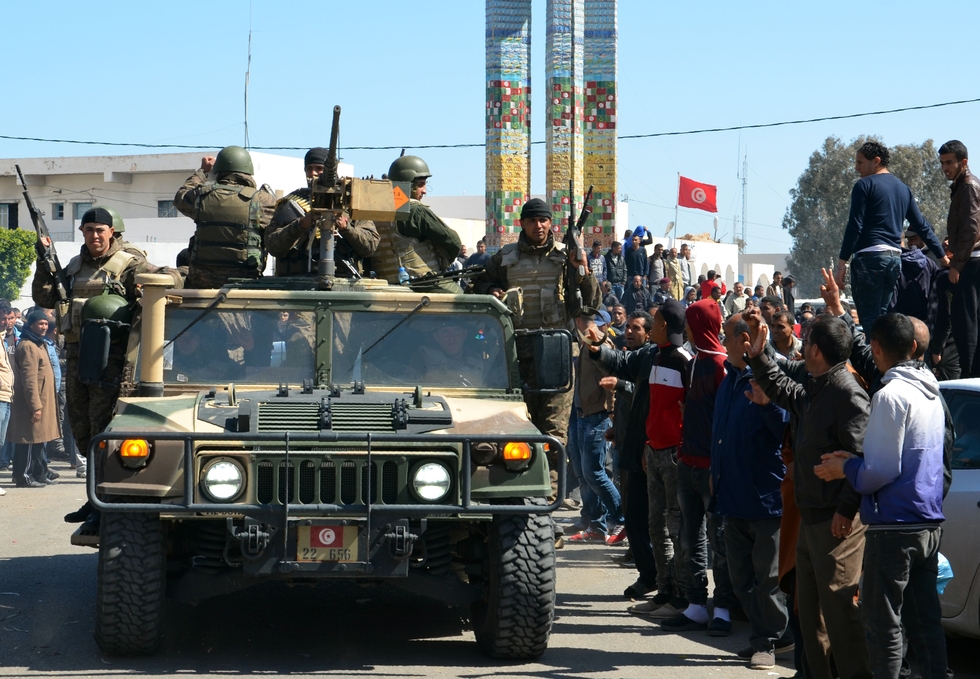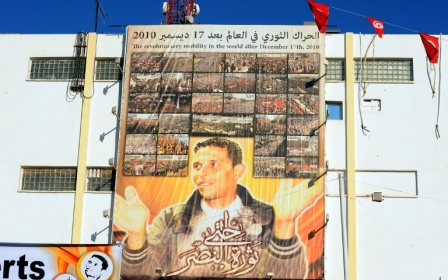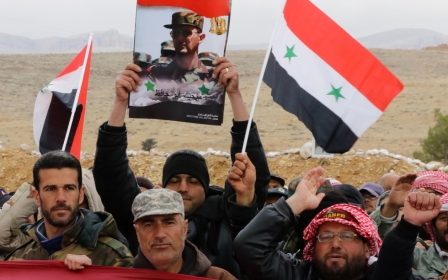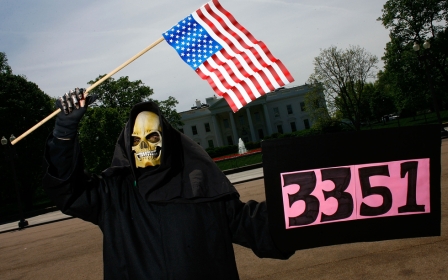Tunisia has yet to face up to the IS threat from within

The international terror network IS launched a devastating attack earlier this week against the small town of Ben Guedrane in southern Tunisia. Through this daring operation IS attempted the takeover of the strategic location and install a mini caliphate from which it would launch further attacks across the region.
Seen as the most audacious attack by IS on the African continent, the aborted operation would have been achieved thanks to committed foot soldiers intent on expanding the organisation's territorial and political reach.
At a time when concerted efforts are being made inside as well as around Libya to bring the current turmoil to an end, stopping IS in its tracks is now a priority for the Tunisian government, which is already contending with a deepening economic crisis.
In recent months Tunisia has been on high alert. The country has suffered large-scale attacks in two major tourist hot spots. With IS now firmly established in neighbouring Libya and attempting to cross over to Tunisia through the porous border both countries share, the small popular North African tourist destination is today increasingly vulnerable.
The Tunisian army has strengthened security on its south-eastern flank and while it has managed to reduce the impact of the attack, IS will have been victorious in instilling fear amongst Tunisians and indicating it can still hit at anytime and anywhere.
It has to be noted that Ben Guedrane is a very small town with very little infrastructure that could be used to tackle large-scale attacks from heavily armed assailants. Still, the threats coming from Libya are not to be neglected and Tunisia should have been better prepared.
Local sources indicated that intelligence gathered in recent weeks pointed to an almost certain attack on the border, after a previous one left as many as nine dead at a frontier checkpoint.
Unfortunately for the Tunisian government, IS is not only next door, but very much indoors. Amongst the highest numbers of IS recruits since the end of 2014 have been coming from Tunisia.
In the aftermath of Ben Ali's fall and the economic crisis that followed, Tunisian youths were seen as suitable candidates for paid "holy jihad". Many who returned, disillusioned by their Syrian escapade, explained how recruiters would offer them significant salaries for joining the ranks of the organisation.
In the absence of any suitable alternatives, these offers were taken up with often devastating consequences. Some rejected the nihilistic message of IS while others, rising in ranks, would return to Tunisia to organise deadly attacks against the now deemed "illegitimate" Tunisian government.
First targeting Tunisia's economic backbone, the tourism industry, these zealous recruits are now looking to raise the stakes by setting up a base on the Tunisian-Libyan border which will give them an extended opening on the Mediterranean as well as an inroad into the Western Sahel belt, itself a gateway to sub-Saharan Africa.
Tunisians have been told to buckle up and expect difficult times ahead as the organisation promises to make the small North African country its next treasured catch on the road to Arab dominion.
Strengthened cooperation between the governments of Algeria and Tunisia have already yielded positive results, with a major operation stopped in Tebessa, a stone's throw away from the Tunisian border. But the sheer quantity of arms available in a currently rudderless Libya means the task is going to be difficult.
The Algerian military has extensive experience in tackling terror outfits having been successful in destroying the main branches of the GIA military wing back in the 90s and the early part of the last decade. As a result the GIA, which saw its capabilities reduced in Algeria, travelled south to the desert region before merging with al-Qaeda affiliates and becoming AQMI or al-Qaeda in the Maghreb.
Should all these various fractions unite efficiently both Algeria and Tunisia are at serious risk of seeing large parts of their territory coming under some sort of IS control. On the Algerian side, that is unlikely to happen, Algeria has the expertise and sophisticated weaponry to tackle IS; and while the large sways of territory that separate Algeria, Tunisia and Libya are difficult to police, the Algerian army has deployed considerable manpower in the region to cushion a possible blow.
The Tunisian military might have been successful in limiting the scale of devastation planned by IS when it attempted to take over Ben Guedrane, but the government so far has been inept at tackling the root causes of the problem and offering a genuine policy that would see these organisations and their affiliates lose favour with a disenfranchised population.
So far President Beji Essebsi has been concentrating his wrath on the previous government attributing most of the country's current woes on its mistakes. While that is a popular policy with the secular-liberal Tunisians hostile to Ennahda's ideology, it does not translate to any suitable solution for Tunisia's problems including an ever-rising unemployment rate and consequent pauperisation. In these sections of marginalised society, as was the case during Ben Ali's rule, the appeal of jihad as a job opportunity gains support.
Coupled with the opportunities of leadership roles in Libya heading one of numerous militia groups, Tunisia's problems will only disappear when Tripoli restores some sort of order.
Unfortunately that is unlikely to happen in the foreseeable future. Washington and London have deployed forces to supposedly tackle the "IS threat" which was created as a result of their policies in Libya in the first place.
It has to be noted that Libya's former leader Muammar Gaddafi was acting as a bulwark against radical groups financed by Gulf monarchies and intent on spreading across the Maghreb. His removal as a result of the NATO onslaught of 2011 led to the chaos we see today, and has allowed Libya to become a base for IS to expand beyond the Levant.
The presence of US and British forces will no doubt act as a rallying cry for those claiming to fight the West, albeit by killing essentially Arabs and Muslims.
Algeria has strongly rejected the presence of Western troops in Libya and insists a solution to the crisis can only come from Libyans themselves. In the absence of any normality, Libyans increasingly prefer to seek safe havens of abroad, leaving the country in the hands of bandit groups with no genuine desire to see it emerge from this crisis.
Tunisia for its part is sandwiched between two oil-producing giants and has neither the funds nor man power to single-handly tackle this threat.
Algeria is concentrating on policing its borders which include Libya and Tunisia but also Niger, Mauritania, Morocco and Mali, the latter being where in late 2012 al-Qaeda's leadership established a temporary base in the north.
Although Egypt under President Abdul Fattah al-Sisi has consistently vowed to tackle radical groups, so far his only worry has been to reduce their political clout in Egypt in a bid to strengthen his hold on the country.
Sisi's bombastic talk has not resulted in any genuine drive to support his North African partners in this difficult endeavour. His only concession to attacking groups said to be "Islamist" is his constant targeting of Palestinian resistance movement Hamas, whose ties to IS are nonexistent and which has itself had to contend with IS affiliate groups attempting to infiltrate the Gaza Strip it controls.
Although the Tunisian military has done the bulk of the work, its government is yet to put forward a long-term political solution to this ongoing problem. In that respect, when Tunisian premier Habib Essib asked for the population to support the government's effort he wasn't wrong: people should buckle up - by all accounts it's going to be a bumpy ride.
- Hafsa Kara-Mustapha is a journalist, political analyst and commentator with a special focus on the Middle East and Africa. She has worked for the FT group and Reuters and her work has been published in the Middle East magazine, Jane's Foreign report and a host of international publications. A regular pundit on TV and radio, Hafsa can regularly be seen on RT and Press TV.
The views expressed in this article belong to the author and do not necessarily reflect the editorial policy of Middle East Eye.
Photo: Tunisians wave to a military convoy during a visit of the prime minister in Ben Guerdane on 13 March, 2016, a week after militants launched a wave of attacks on army and police posts in the border town (AFP).
New MEE newsletter: Jerusalem Dispatch
Sign up to get the latest insights and analysis on Israel-Palestine, alongside Turkey Unpacked and other MEE newsletters
Middle East Eye delivers independent and unrivalled coverage and analysis of the Middle East, North Africa and beyond. To learn more about republishing this content and the associated fees, please fill out this form. More about MEE can be found here.





